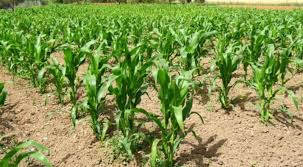Avocado farming
Avocado farming can vary in duration depending on several factors, including the specific variety of avocado being grown and the climate conditions in the region. On average, it takes approximately 3 to 5 years for an avocado tree to reach full maturity and start bearing fruit. However, some avocado varieties may take even longer to mature.
The process of avocado farming involves several stages:
Seedling Stage: This is the initial phase where avocado seeds are germinated and grown into seedlings. It typically takes about 6 to 12 months for the seedlings to reach a suitable size for transplanting.
Transplanting: Once the seedlings have grown to a certain height and have developed a strong root system, they are transplanted into the field or a suitable container for further growth. Avocado trees need well-drained soil and adequate spacing to ensure proper growth.
Establishment and Pruning: During the first few years after transplanting, the avocado trees require careful nurturing, including regular watering, fertilization, and weed control. Pruning is also essential to shape the tree, remove dead or damaged branches, and encourage healthy growth.
Flowering and Fruit Development: Avocado trees typically begin to flower after a few years of growth. The flowers are pollinated, usually by bees or other insects, and develop into fruit. The time from flowering to fruit maturity can vary but usually ranges from 9 to 12 months.
Harvesting: Avocado fruits are harvested when they have reached their desired maturity and size. This timing depends on the specific variety and the market requirements. Avocado harvesting is usually done manually, as each fruit needs to be carefully hand-picked to avoid damage.
Soil Requirements: Avocado trees prefer well-drained soil with a pH level between 6 and 7.5. They are sensitive to waterlogged conditions, so the soil should have good drainage to prevent root rot. Adding organic matter or compost to the soil can improve its fertility and drainage.
Irrigation: Avocado trees require regular and consistent irrigation, especially during dry periods. However, over-watering should be avoided, as it can lead to root problems. Proper irrigation practices include deep watering, allowing the soil to dry out slightly between waterings, and adjusting irrigation frequency based on weather conditions.
Fertilization: Avocado trees have specific nutritional needs, especially for nutrients like nitrogen, phosphorus, and potassium. Regular fertilization is necessary to ensure healthy growth and fruit production. Soil and leaf analysis can help determine the appropriate fertilizers and application rates.
Pollination: Most avocado varieties are self-pollinating, meaning they can produce fruit without cross-pollination. However, having multiple avocado trees in close proximity can enhance pollination and increase fruit yield. Bees and other pollinators play a vital role in transferring pollen between flowers.
Pest and Disease Management: Avocado trees are susceptible to various pests and diseases, including pests like aphids, mites, and thrips, as well as diseases like root rot and fungal infections. Regular monitoring, early detection, and appropriate pest and disease management practices, such as cultural controls, biological controls, and judicious use of pesticides, are essential for maintaining tree health.
Pruning and Training: Pruning avocado trees helps maintain their shape, manage their size, and improve air circulation within the canopy, reducing the risk of diseases. Pruning is typically done during the dormant season and involves removing dead or diseased branches, thinning out overcrowded areas, and shaping the tree for better fruit production.
Harvesting and Post-Harvest Handling: Avocado fruits are typically harvested when they reach the desired maturity stage, which can vary depending on the variety and market preferences. The fruit should be gently hand-picked to avoid damage. After harvesting, avocados need proper handling, including cleaning, grading, and packing to maintain their quality during transportation and storage.
Remember that specific avocado farming practices can vary depending on the region, climate, and variety being cultivated. It's always recommended to seek guidance from local agricultural extension services or avocado farming experts for precise information relevant to your specific location.






Comments
Post a Comment